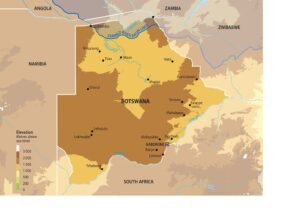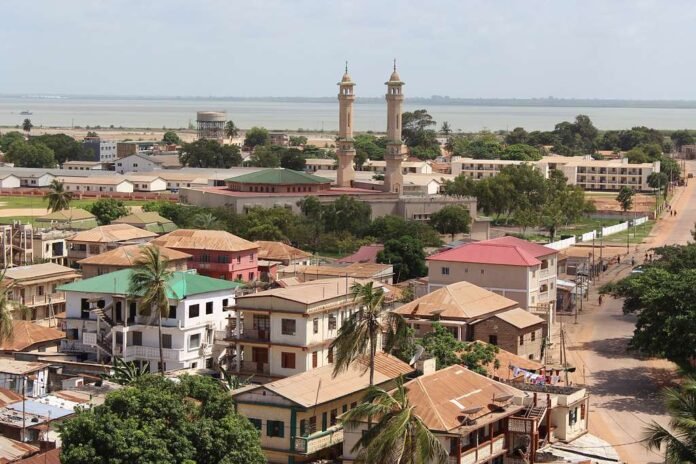Botswana has made significant progress in healthcare, offering both public and private health insurance options that serve distinct segments of the population. While both aim to improve access to medical services, they differ in structure, coverage, cost, and target demographics.
Public health insurance in Botswana is largely government-funded and provides universal healthcare to all citizens at no cost. This system includes essential services such as maternity care, vaccinations, emergency treatment, and comprehensive HIV/AIDS care. Care is delivered through a network of public hospitals and clinics, such as Sir Ketumile Masire Teaching Hospital and Good Hope Hospital. However, rural facilities often face challenges like under-resourcing, long wait times, and limited access to specialist care. The universal nature of this system means it is particularly important for lower-income groups, and it does not extend to expatriates or visitors.
Supplementing the public healthcare system are public medical aid schemes like Botswana Public Officers’ Medical Aid Scheme (BPOMAS) and Botswana Medical Aid (BOMAID). These plans offer additional benefits for government and private sector employees, including private consultations, hospital stays, and even medical evacuation. However, they still operate under the broader umbrella of the public system.
In contrast, private health insurance in Botswana offers more personalized and extensive healthcare coverage. It is typically accessed by expatriates and higher-income locals who seek faster service and more specialized care. Leading international providers such as Cigna Global, Allianz, and AXA offer flexible plans that include inpatient and outpatient services, dental and optical benefits, emergency evacuation, and repatriation. These policies often grant access to private hospitals like Life Gaborone Private Hospital and Lenmed Bokamoso, which provide high-end medical care with shorter wait times and multilingual staff.
The key differences between the two systems lie in accessibility and quality. Public health insurance is free and universally available to citizens but tends to be overburdened and unevenly distributed. Private health insurance, though costly, offers premium services and broader provider networks, often concentrated in urban centers. Additionally, private insurance is crucial for expatriates, who are excluded from public coverage.
Similarities do exist. Both systems aim to improve public health outcomes and ensure financial protection from catastrophic health expenses. Moreover, public schemes like BOMAID increasingly resemble private plans by offering extended benefits and access to private care for members who can afford higher-tier plans. In both cases, the presence of insurance—whether public or private—helps to reduce out-of-pocket expenses and enhances health service accessibility.
Top Public Health Insurance Options in Botswana
Botswana has a primarily government-led healthcare system. Unlike countries with a variety of competing public health insurers, Botswana offers centralized healthcare services through a national framework. There is essentially one public health insurance system administered by the government, and it plays a dominant role in ensuring health coverage for citizens, especially for those who are low-income or live in rural areas. As of now, Botswana does not operate multiple public health insurance schemes; instead, it has a single unified public system. Below is an overview of this public health coverage, followed by information on smaller auxiliary programs.
1. Botswana Ministry of Health and Wellness – Public Healthcare System(Official Website: https://www.moh.gov.bw/)
- Cost:
Public healthcare in Botswana is heavily subsidized. Citizens pay minimal fees at government facilities, and in many cases, services are free, especially for vulnerable populations such as children under five, pregnant women, and the elderly. Nominal consultation fees may apply, usually ranging from BWP 5 to BWP 20 (about USD 0.40 to USD 1.50), making it highly affordable. - Available Services/Coverage Features:
The public system covers a comprehensive range of services:
- Primary and secondary healthcare
- Maternity and child health services
- HIV/AIDS treatment and antiretroviral therapy (ART)
- Tuberculosis and malaria treatment
- Emergency services
- Some surgical procedures and hospitalization
- Immunization programs
However, specialized care and advanced diagnostics may require referral to private institutions or out-of-country treatment.
- Primary and secondary healthcare
- Open for All or Limited:
This system is universally available to all citizens and legal residents. Non-citizens and expatriates can access services but typically at higher rates. Refugees and asylum seekers are also covered under humanitarian provisions. - Core Financial Features:
The government allocates a significant portion of its national budget to healthcare, making it one of the better-funded systems in Sub-Saharan Africa. There is no formal contribution-based public insurance model for individuals; rather, services are funded through general taxation and donor support. For example, HIV/AIDS care is largely supported by international aid programs in partnership with the government. - Consumer Satisfaction Score:
While the public appreciates the affordability and access to basic care, satisfaction is mixed due to long waiting times, periodic drug shortages, and limited access to specialists. On a scale of 1 to 10, general consumer satisfaction typically ranges from 6.5 to 7.5, particularly higher in urban centers where services are more consistent and lower in remote areas where infrastructure is weaker.
Additional Government-Linked Schemes
Though not separate insurance entities, the following programs function within or alongside the public health framework:
- HIV/AIDS Public Support Program:
Offers free ART to all diagnosed patients. Botswana was one of the first countries in Africa to offer free treatment, and this program has significantly reduced the national HIV burden. - Maternal and Child Health Programs:
Government clinics provide free antenatal, delivery, and postnatal services, along with vaccinations and pediatric care, to all mothers and children. - Health Care for Civil Servants (via Government Employees Medical Aid Scheme – GEMVAS):
Though GEMVAS operates semi-independently, it remains a government initiative and provides enhanced health access to public sector employees.
Top Private Health Insurance Providers in Botswana
Botswana’s private health insurance sector complements the public healthcare system by offering more comprehensive, faster, and often higher-quality care, primarily targeting expatriates, high-income locals, and corporate clients. Below are the top private health insurance providers individually, highlighting their costs, coverage, accessibility, financial features, and consumer satisfaction.
1. Cigna Global(Official Website: https://www.cignaglobal.com/)
- Cost:
Premiums vary widely based on plan type, age, and coverage level but typically range from BWP 5,000 to BWP 25,000 annually (approx. USD 400 to 2,000). - Available Services/Coverage Features:
Offers flexible plans with inpatient and outpatient care, specialist consultations, maternity, dental, optical, emergency medical evacuation, and repatriation. Plans are highly customizable to suit individual needs. - Open for All or Limited:
Open globally, catering especially to expatriates and international travelers in Botswana. - Core Financial Features:
Uses direct billing with a wide network of providers, reducing out-of-pocket expenses at the point of care. Offers tiered plans with different deductible options. - Consumer Satisfaction Score:
Highly rated internationally, with a satisfaction score around 8.5/10, praised for customer service and global coverage.
2. Allianz Botswana(Official Website: https://www.axaglobalhealthcare.com/en/)
- Cost:
Mid to high range, with individual premiums starting around BWP 6,000 per year, increasing with coverage levels and optional add-ons. - Available Services/Coverage Features:
Provides comprehensive inpatient and outpatient services, dental, optical, maternity care, accident coverage, and chronic illness management. Includes global portability for frequent travelers. - Open for All or Limited:
Available to individuals, families, and corporate clients, including expatriates. - Core Financial Features:
Offers flexible plans with copay options and direct billing through an extensive provider network. Premiums vary based on risk profile and coverage tiers. - Consumer Satisfaction Score:
Scores around 7.8/10, noted for reliability and claims processing efficiency.
3. AXA Botswana(Official Website: https://www.axaglobalhealthcare.com/en/)
- Cost:
Starting at roughly BWP 4,500 annually, with premium increases based on coverage tiers and additional riders. - Available Services/Coverage Features:
Offers five coverage tiers from basic to premium, including inpatient, outpatient, dental, optical, maternity, and emergency evacuation. Preventive care and chronic disease management are included. - Open for All or Limited:
Available for individuals, families, and employers; expatriate-friendly. - Core Financial Features:
Uses a combination of direct billing and reimbursement. Provides options for co-payments and deductibles. - Consumer Satisfaction Score:
Around 7.5/10, appreciated for plan flexibility and customer support.
4. Life Gaborone Private Hospital Insurance(Official Website: https://www.lifehealthcare.co.za/hospitals/botswana/gaborone/life-gaborone-private-hospital/)
- Cost:
Premiums are generally higher due to the focus on private hospital care, ranging from BWP 8,000 to BWP 20,000 annually. - Available Services/Coverage Features:
Covers high-quality inpatient and outpatient services at Life Gaborone Hospital, including specialist consultations, surgeries, maternity care, and diagnostics. - Open for All or Limited:
Limited to patients requiring access to private hospital facilities; primarily individuals with corporate or private plans. - Core Financial Features:
Insurance plans require pre-authorization for hospital admissions, often include copays, and may have annual coverage limits. - Consumer Satisfaction Score:
Rated at about 8.0/10, favored for premium care and multilingual staff.
5. Lenmed Bokamoso Private Hospital Insurance(Official Website: https://www.lenmed.co.za/hospital/bokamoso-private-hospital-lenmed/)
- Cost:
Comparable to Life Gaborone, with annual premiums typically between BWP 7,000 and BWP 18,000. - Available Services/Coverage Features:
Insurance plans offer access to advanced medical services at Lenmed Bokamoso Hospital, including inpatient care, surgeries, maternity, and outpatient specialist consultations. - Open for All or Limited:
Available mainly to insured individuals through corporate plans or private buyers seeking private hospital access. - Core Financial Features:
Plans generally include copayments and require pre-authorization; some offer cashless access through direct billing. - Consumer Satisfaction Score:
Consumer feedback rates around 7.9/10, highlighting quality care and well-equipped facilities.
READ MORE: Private and public health insurance of Czech Republic (Make informed choices)


